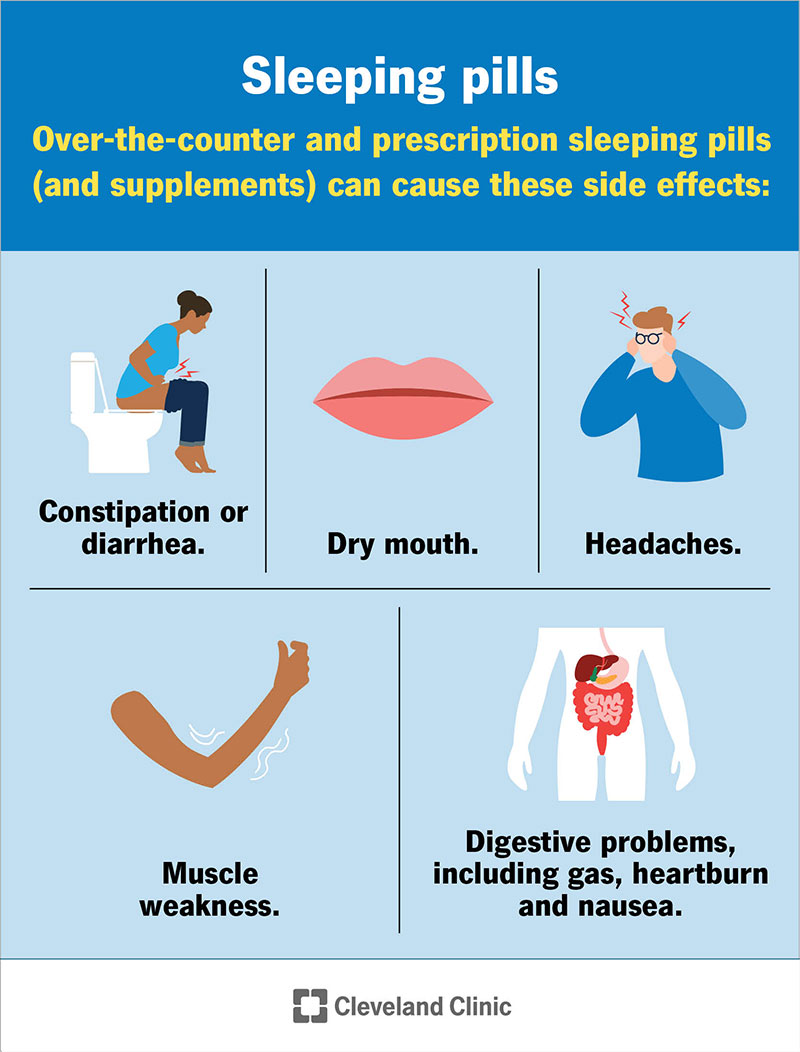Are you considering melatonin to help with sleep troubles? You’re not alone.
Many people turn to this natural supplement hoping for a peaceful night’s rest. But before you dive in, it’s crucial to understand what comes with it. Just like any supplement, melatonin has its side effects, and knowing them can make all the difference in your experience.
Imagine feeling more in control of your sleep routine, knowing exactly what to expect. That’s what this article is all about—arming you with the knowledge to make informed decisions. Stick around to discover the potential side effects of melatonin and ensure you’re making the best choice for your health and well-being.
Common Side Effects
Melatonin can cause common side effects like drowsiness, dizziness, and headaches. Some people might experience nausea and irritability. It’s important to monitor how your body reacts.
When you consider using melatonin to help improve your sleep, it’s important to be aware of some of the common side effects. While melatonin is often seen as a natural remedy for sleep disorders, it can bring about certain unwelcome experiences. Understanding these side effects can help you make informed decisions about using it.
Drowsiness During Daytime
One of the most common side effects of melatonin is feeling drowsy during the day. This can catch you off guard, especially if you have a busy schedule. Imagine needing to stay alert for an important meeting and suddenly feeling like you could take a nap. Monitoring your dosage and the time you take melatonin might help manage this drowsiness.
Headaches And Migraines
Headaches and migraines are not uncommon when taking melatonin. It’s a frustrating side effect that can affect your productivity and mood. If you notice frequent headaches after starting melatonin, you might want to reconsider your routine. Have you tried adjusting the timing or dose to see if it makes a difference?
Dizziness And Lightheadedness
Feeling dizzy or lightheaded can be another side effect to watch out for. This can be particularly unsettling if you’re navigating a busy day or operating machinery. It’s a reminder to listen to your body and possibly rethink your melatonin use. Could it be that a lower dose might still give you the sleep benefits without the dizziness? Considering these side effects, how do you balance the benefits of melatonin with these potential drawbacks? Adjusting your approach and being mindful of your body’s reactions can lead to a more restful night and a more productive day.
Rare Side Effects
Melatonin side effects are usually mild, but rare reactions can occur. Some individuals may experience dizziness, nausea, or vivid dreams. Always consult a healthcare provider before starting any new supplement.
Melatonin is often touted as a natural solution for sleep troubles, but like any supplement, it can have side effects. While most people tolerate melatonin well, some may experience rare side effects. It’s important to be aware of these, especially if you’re considering adding melatonin to your nightly routine. Let’s look at a few of these uncommon reactions and how they might affect you.
Mood Changes
Sometimes, melatonin can lead to unexpected mood changes. You might notice feelings of irritability or sadness after taking it. A friend of mine once shared that she felt more anxious when she tried melatonin, which was surprising since she expected it to help her relax. If you find your mood shifting in unexpected ways, it might be worth reconsidering your dosage or discussing it with a healthcare professional.
Stomach Discomfort
Stomach discomfort is another rare side effect you might encounter. Some people report feelings of nausea or an upset stomach after taking melatonin. Imagine having to deal with an uneasy stomach when all you wanted was a good night’s sleep. If this happens to you, it might help to take melatonin with food or adjust the timing of your dose.
Vivid Dreams Or Nightmares
Have you ever woken up from a dream that felt too real? Melatonin can sometimes lead to vivid dreams or even nightmares. This can be unsettling, especially if you’re not used to such intense dreams. You might wonder if the peaceful sleep melatonin promises is worth these nightly adventures. If vivid dreams become too frequent, consider reducing your intake or consulting with a healthcare provider. Understanding these rare side effects can help you make an informed decision about melatonin. Have you experienced any of these side effects, or know someone who has? Share your thoughts and let’s learn together.
Impact On Hormonal Balance
Melatonin is widely used as a sleep aid, but it can affect hormones. Understanding how melatonin interacts with hormonal balance is important for overall health. This section explores its impact on reproductive hormones and thyroid function.
Effect On Reproductive Hormones
Melatonin can influence the body’s reproductive hormones. It may affect levels of estrogen and testosterone. This can alter menstrual cycles in women. Men might notice changes in testosterone levels. Both scenarios could affect fertility. It’s important to monitor these changes.
Interaction With Thyroid Function
The thyroid gland plays a key role in metabolism. Melatonin can interact with thyroid hormones. It might alter the function of the thyroid gland. This can lead to changes in energy levels. Some may experience fatigue or changes in weight. Keeping an eye on these symptoms is essential.

Credit: cereset.com
Interactions With Medications
Melatonin is a popular supplement used by many to improve sleep quality. However, it’s crucial to understand how it interacts with medications you might be taking. These interactions can lead to unexpected side effects. Knowing these can help you make informed decisions about your health and wellness. Let’s dive into some common medications that can interact with melatonin.
Blood Thinners
If you’re taking blood thinners, melatonin might not be your best friend. It can potentially enhance the effects of these medications, increasing your risk of bleeding. Imagine you’re trying to enjoy a peaceful night’s sleep but end up worrying about your health instead. Always consult your healthcare provider before adding melatonin to your routine.
Immunosuppressants
Melatonin might interfere with immunosuppressants used to manage autoimmune conditions. You might think of melatonin as a harmless sleep aid, but it could potentially reduce the effectiveness of these crucial medications. Have you ever wondered why your medication isn’t working as it should? This could be a reason. Speak with your doctor to ensure your treatments are working optimally.
Antidepressants
For those on antidepressants, melatonin could alter the way these drugs work. It might either amplify or diminish their effects, leading to mood swings or other psychological impacts. Are you noticing changes in your mood after starting melatonin? This might be the culprit. It’s essential to discuss any changes you experience with your healthcare provider to adjust your treatment as necessary.
Understanding the interactions between melatonin and medications is not just about avoiding side effects; it’s about ensuring your overall health and well-being. Have you checked how melatonin might interact with your current medications? Take charge of your health and consult your healthcare provider today.
Long-term Usage Concerns
Melatonin is often hailed as a natural sleep aid. Many people use it to combat insomnia or adjust their sleep cycle. But what happens when it’s used over a long period? Concerns about long-term usage are increasingly relevant. Understanding potential side effects can help you make informed decisions.
Potential Dependency
Relying on melatonin can lead to dependency. Your body might struggle to produce melatonin naturally. This can result in needing the supplement to fall asleep. Habitual use may increase this risk. Some users find it hard to sleep without melatonin after prolonged use. This dependency can disrupt your natural sleep pattern.
Effects On Sleep Cycle
Melatonin can alter your sleep cycle. Long-term use may change how your body responds to natural light cues. This can affect your circadian rhythm. Your sleep-wake cycle might become irregular. You might sleep at odd hours or wake frequently. These changes can lead to daytime fatigue and reduced alertness.

Credit: my.clevelandclinic.org
Considerations For Specific Populations
Melatonin is widely used for sleep regulation. It is generally safe for most people. Yet, there are specific groups who need special attention. Pregnant women, children, and the elderly may face unique risks. Understanding these can help make informed choices.
Pregnant And Nursing Women
Pregnant women should be cautious with melatonin. Its effect on unborn babies is not well-studied. It may interfere with hormone levels. Nursing mothers should also be wary. Melatonin can pass through breast milk. Consult a doctor before using melatonin.
Children And Adolescents
Melatonin use in kids is common for sleep issues. But long-term effects are unclear. It may impact puberty and growth. Parents should discuss melatonin with a pediatrician. Safe dosages are crucial for young users.
Elderly Individuals
Melatonin can be beneficial for older adults. It may help with age-related sleep problems. But seniors may be sensitive to side effects. Dizziness and daytime drowsiness are common. A healthcare provider can guide safe use.
Tips For Safe Usage
Melatonin is a popular supplement. It helps regulate sleep patterns. But using it safely is crucial to avoid side effects. Understanding optimal dosage, timing, and professional advice can enhance its benefits. Here are some tips for safe usage.
Optimal Dosage Recommendations
Start with the lowest dose. Gradually increase if needed. Common doses range from 0.5 mg to 5 mg. Choose a dose based on your needs. Higher doses can cause dizziness or headaches. Monitor your body’s response. Adjust accordingly. Consult a healthcare provider for personalized advice.
Timing And Frequency Advice
Take melatonin 30 minutes before bedtime. It helps signal your body to sleep. Avoid taking it during the day. Melatonin can cause drowsiness. Use it occasionally for best results. Regular use may affect your natural sleep cycle. Listen to your body’s signals.
Consulting Healthcare Professionals
Discuss melatonin use with your doctor. Inform them of any medical conditions. They can advise on safe usage. Healthcare providers know about possible interactions. They can guide you based on your health history. Professional advice can prevent unwanted side effects.

Credit: www.sleep.com
Frequently Asked Questions
Can Melatonin Cause Dizziness Or Headaches?
Yes, melatonin can cause dizziness or headaches in some individuals. These are common side effects experienced when taking melatonin. If you notice persistent symptoms, it’s best to consult a healthcare provider. They can help determine if melatonin is suitable for your needs or suggest alternatives.
Is Daytime Drowsiness A Side Effect Of Melatonin?
Daytime drowsiness is a possible side effect of melatonin. It occurs when melatonin affects your body’s sleep-wake cycle. Adjusting the dosage or timing may help reduce drowsiness. Always consult a healthcare professional for personalized advice to ensure safe and effective use of melatonin.
Can Melatonin Lead To Mood Changes?
Melatonin may cause mood changes, such as irritability or anxiety. These changes are generally mild and temporary. Monitoring your mood while using melatonin can help identify any issues. Consult a doctor if mood changes persist, as they can offer guidance on managing side effects.
Does Melatonin Affect Blood Pressure?
Melatonin can affect blood pressure in some individuals. It may cause a slight increase or decrease. If you have blood pressure concerns, consult your doctor before using melatonin. Monitoring blood pressure while on melatonin can ensure safe and effective use of the supplement.
Conclusion
Melatonin helps many people sleep better. Yet, it can cause side effects. Some may feel dizzy. Others might experience headaches. It’s important to listen to your body. Stop use if you notice issues. Always talk to a doctor before starting melatonin.
This ensures safety and effectiveness. Understanding melatonin’s effects helps make informed choices. Sleep is important, but safety comes first. Choose wisely and prioritize health.
